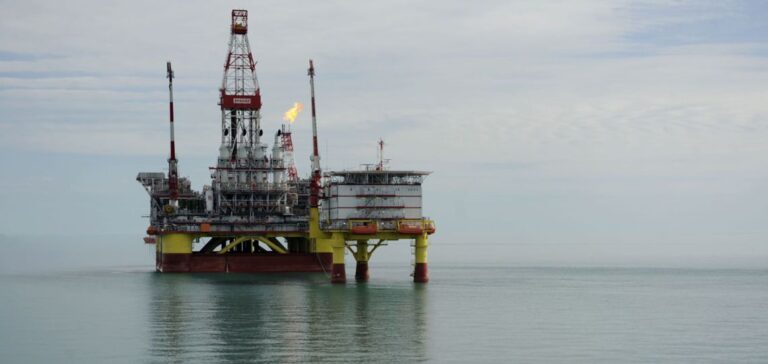Underlying the agreement announced by Lebanon and Israel on their maritime border, negotiations on the exploitation of hydrocarbons in the eastern Mediterranean are taking place between Egypt, the Palestinians and the Hebrew state and concern important gas deposits off Gaza.
“Our gas, our right!”. Posters have recently appeared in the Gaza Strip urging neighbors in the region to revive a project that has been dormant for two decades: the exploitation of the Marine field.
In 1999, the Palestinian Authority commissioned British Gas to conduct exploration drilling, before the giant Shell took over in 2016, only to withdraw two years later amid Israeli objections and other disagreements.
Since then, the Palestinian Authority has been looking for a group to invest in the development of the field, which is located some 30 km off the coast of Gaza and whose reserves are estimated at around 28 billion m3 of natural gas, a godsend for the ailing Palestinian economy.
Talks are held sporadically between Israel and the Palestinian Authority (PA). The only problem is that Gaza is not controlled by the PA but by Hamas, which is also seeking to profit from the field, which is located in an area that has been under Israeli blockade for 15 years.
“Serious discussions are underway to reach a framework agreement, which we expect to reach before the end of this year,” a senior PA official who requested anonymity told AFP this week.
They involve the Palestinian Consolidated Contractors Company (CCC), the Palestinian Investment Fund (PIF), the Egyptian Natural Gas Holding Company (Egas) and Israel.
“As soon as the agreement is signed, the Egyptian company Egas will begin work to develop the Marine 1 and 2 fields, with the aim of starting production in two years,” he added.
– With Hamas? –
An Egyptian source told AFP that Cairo was “in contact with all parties, including Israel, to develop and take advantage of the gas field in Gaza, which would also support the Palestinian economy.
Questioned by AFP, the Israeli Ministry of Energy did not wish to comment.
“Israeli approval is needed to start work and expand the pipeline network,” said another PA official familiar with the talks.
He said he hoped that Egypt would succeed in convincing Israel and that the United States would exert pressure as it did for the agreement negotiated by Washington with Lebanon and Israel to allow the extraction of hydrocarbons by both countries.
A dialogue already exists between Israel, Egypt and the Palestinians since the creation in 2019 of the Eastern Mediterranean Gas Forum, responsible for ensuring compliance with international law in the management of gas resources, and which also includes Jordan, Cyprus, Greece and Italy.
On the other hand, Egypt and Israel share an undersea gas pipeline, passing off the coast of Gaza and allowing Israeli gas to be transported to Egypt, where it will now be liquefied and transported by ship to Europe, which is seeking to diversify its supplies.
– “Obstruction” –
In the current geopolitical and energy context, Hamas is becoming impatient and organizing demonstrations to insist on Palestinian rights to the gas resources off the coast of the Gaza enclave under Israeli blockade.
“We warn the occupation (Israel) against any change in our right to our maritime resources, especially natural gas off our coast,” said Suhail al-Hindi, the Hamas official in charge of the natural resources file.
“From a legal point of view, Hamas has nothing to do with Gaza gas, but because it controls the enclave it can easily obstruct. However, I believe that Egypt can solve this problem by putting pressure on Hamas,” Mazen Al-Ajla, professor of economics at the Islamic University of Gaza, told AFP. “Israel insists, moreover, that Hamas should not benefit from Gaza’s gas as a condition for any agreement.
Hamas and the Fatah movement, which dominates the Palestinian Authority, signed a reconciliation agreement on Thursday after more than 15 years of coldness, but it is not known how far it will go, especially on gas exploitation off Gaza.





















